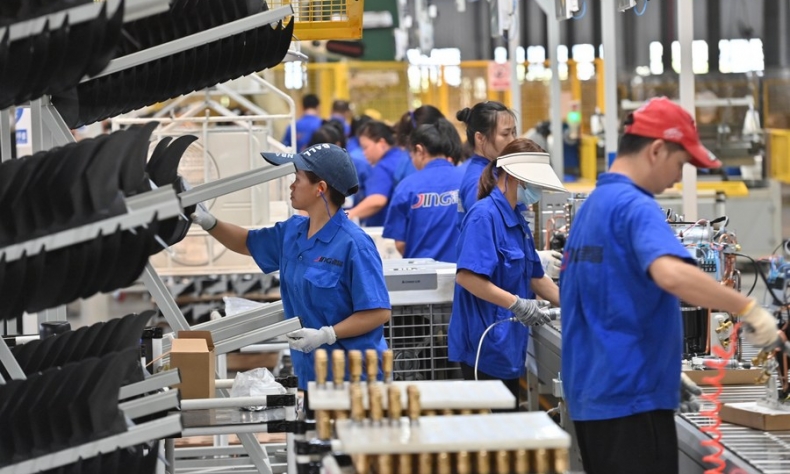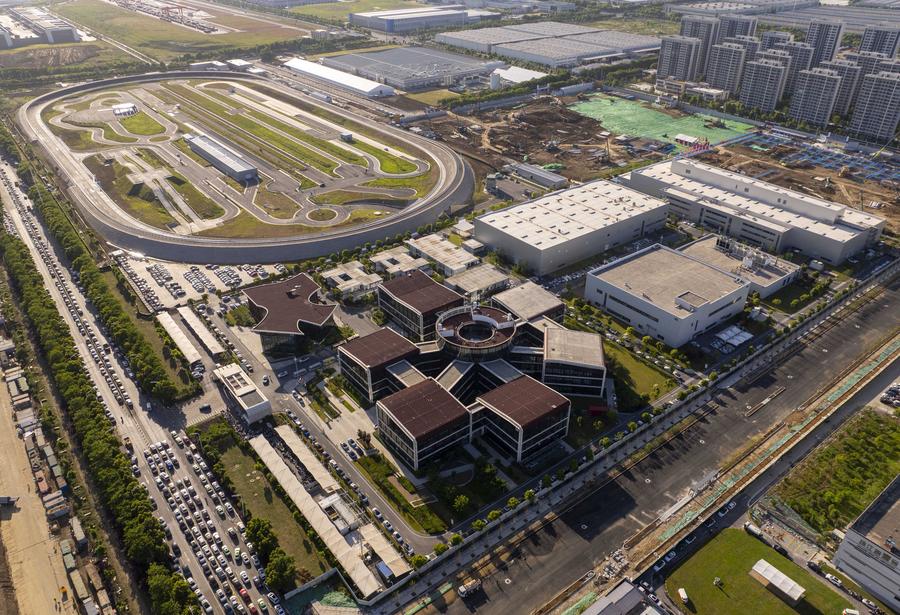Opening Doors and Streamlining Access

As reform measures are implemented in the coming five years, foreign-funded enterprises in the Chinese economy are likely to gain momentum.
Despite negative arguments about China’s growth and future policies in some quarters, senior Party leaders recently laid out a reassuring strategic framework. The Third Plenary Session of the 20th Central Committee of the Communist Party of China, held in Beijing from July 15 to 18, focused on the further comprehensive deepening of the country’s reform. Decisions adopted at the session are expected to positively impact the business activities of market players. For foreign-funded enterprises, in particular, the meeting offered a better understanding of China’s economic policy directions and potential business opportunities.
The plenum pledged to better leverage the market’s role, foster a fairer and more dynamic market environment, and optimize resource allocation efficiency. One important measure is “unswervingly consolidating and developing the public sector and unswervingly encouraging, supporting, and guiding the development of the non-public sector.”
China classifies business entities into two categories based on ownership: public economy and non-public economy. State-owned and collectively owned enterprises fall into the public sector, whereas private and foreign-funded enterprises belong to the non-public sector.
The purpose is to ensure that all economic entities, regardless of ownership, have equal access to production factors according to the law, compete fairly in the market and receive equal legal protection. This particular measure aims to foster mutual complementarity and simultaneous development among entities with different ownership forms.
According to the Ministry of Industry and Information Technology, as of late 2023, non-public enterprises made up 93 percent of the total number of enterprises in China. Among them, foreign-funded enterprises accounted for about 3 percent of the total.
Foreign-funded enterprises also have brisk operations in China, the National Bureau of Statistics said. In the first half of this year, among industrial enterprises above the designated size—with an annual main business revenue above the 20-million-yuan ($2.7-million) threshold, state-holding enterprises realized 0.3-percent growth of profits year on year, while the growth rates of profits in private enterprises as well as enterprises funded by foreign investors or investors from Hong Kong, Macao and Taiwan stood at 6.8 percent and 11 percent, respectively.

The recent third plenary session vowed to continue the policy of creating a sound environment and providing more opportunities for the development of the non-public sector. The plenum planned reforms for state-owned enterprises. In the future, state capital will be directed toward major industries and key sectors essential to the national security and economy. This includes areas such as public services, emergency response and public welfare. In the future, foreign-funded enterprises may invest in a broader range of industries than state-owned enterprises, whose scope of business is likely to narrow in the wake of reforms requiring them to focus on key fields.
To encourage the investment and development of foreign-funded enterprises in China, the plenum announced plans to foster a first-rate market-oriented, law-based and internationalized business environment, all the while protecting the rights and interests of foreign investors according to the law.
The country will also expand its catalog of industries encouraged for foreign investment, appropriately shorten the foreign investment negative list, referring to a list of industries where foreign investment is restricted or prohibited, remove all market access restrictions in the manufacturing sector, and constructively promote wider opening up in sectors such as telecommunications, the Internet, education, culture and medical services.
The plenum also decided on updated guidelines to further reform the institutions and mechanisms for promoting foreign investment, ensuring national treatment for foreign-funded enterprises regarding access to production factors, license applications, standard-setting and government procurement. Additionally, it aims to improve measures to facilitate living and medical services, and financial transactions for people from outside the mainland.
As these reform measures are implemented in the coming five years, foreign-funded enterprises in the Chinese economy are likely to gain momentum.
 Facebook
Facebook
 Twitter
Twitter
 Linkedin
Linkedin
 Google +
Google +










